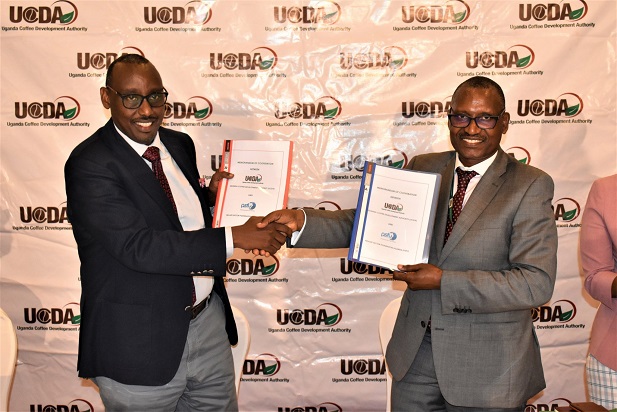The recently concluded nationwide 42-day lockdown intended to lessen the spread of a second wave of the Covid-19 pandemic across Uganda had an impact on businesses, a survey shows.
Findings show that the headline Stanbic Purchasing Managers’ Index (PMI) slipped to 34.6 in July, down from 34.9 recorded during June. This is the second successive decline in business conditions since the lockdown was enforced on June 18, 2021.
The latest reading is well below the series average of 52.5. Output, new orders and employment were all down for the second successive month.
Ronald Muyanja, the Head of Trading at Stanbic Bank Uganda said: “a reduction in prices was noted for the first time in 14 months. Companies lowered their selling prices amid weak demand. Although on a more positive note, firms were optimistic that activity will rebound once lockdown restrictions are lifted”.
Sponsored by Stanbic Bank, the monthly survey involving some 400 respondents is produced by IHS Markit and has been conducted since June 2016. It covers the agriculture, industry, construction, wholesale/retail and the services sectors.
The headline figure derived from the survey is the Purchasing Managers’ Index (PMI) which provides an indication of operating conditions in Uganda. It is a composite index, calculated as a weighted average of five individual sub-components: New Orders (30%), Output (25%), Employment (20%), Suppliers’ Delivery Times (15%) and Stocks of Purchases (10%).
Readings above 50.0 signal an improvement in business conditions on the previous month, while readings below 50.0 show a deterioration.
Muyanja added, “The recent Covid-19 lockdown resulted in further reductions in both output and new orders, with more than half of all respondents signaling declines in each case. Output decreased across each of the agriculture, construction, industry, services and wholesale/retail categories. In line with falling workloads, companies also scaled back their employment and purchasing activity for the second consecutive month.”
Although transportation costs were up, panelists indicated that this was outweighed by lower charges for utilities, falling purchase prices and a reduction in staff costs resulting into a decline in overall input costs.
With input costs decreasing and demand weak, companies lowered their selling prices, the second month running in which this has been the case. Agriculture was the only sector to register a rise in charges.
Despite the lower prices, the lockdown further led to a reduction in purchasing activity during July, the second successive month in which this has been the case.
Falls in input buying were recorded across each of the monitored sectors.
Exports also declined in July, continuing a trend that has lasted in the past 11 months. Anecdotal evidence suggests that reductions in business activity had affected the ability of companies to export their products.
July data pointed to a second successive lengthening of suppliers’ delivery times.
Market analysts widely linked delivery delays to the effects of the lockdown, with travel restrictions and roadblocks being mentioned.
However, going forward, firms were optimistic that activity will rebound once lockdown restrictions are lifted.
Key findings
Second successive fall in output
Input costs decrease for first time in 14 months
Companies confident of rebound following lockdown





